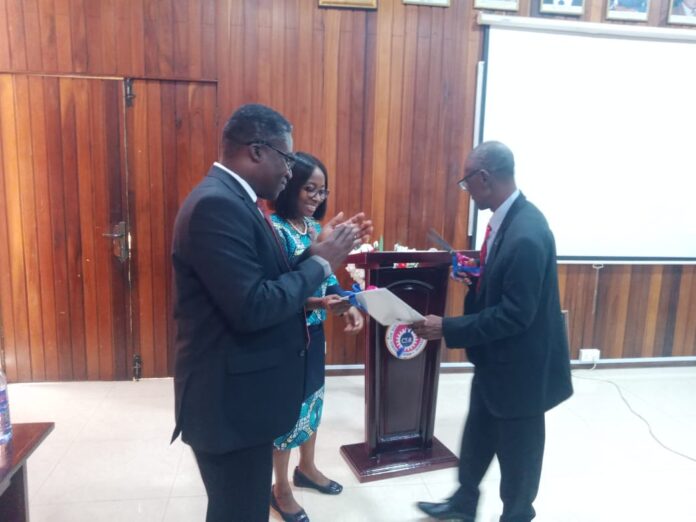The Council for Scientific and Industrial Research (CSIR) has launched a five-year strategic plan with a renewed vision to accelerate Ghana’s socio-economic development and create prosperity through the pursuit of innovative research and industrial technologies.
The plan, which will run from 2023 to 2027, aims to stimulate synergies between the 13 institutes of the CSIR and accelerate the achievement of its goal in real time, thereby increasing the Council’s contribution to national development.
“The CSIR is, therefore, on a mission to become the force for accelerated social and economic development in Ghana,” Professor Paul Bosu, the CSIR’s Director-General, said during the launch at its head office in Accra.
He said the development of the strategic plan went through a series of processes, including a situation analysis by the council, which led to the identification of four strategic directions with clearly defined goals and objectives and a robust monitoring and evaluation framework.
He was of the firm belief that if these processes were carefully pursued, it would reposition the council to have a significant impact on the economy.
He further outlined the prospects for successful implementation of the strategy, emphasising that it was driven by private-sector Research and Development and technological innovation, aiming to develop and transfer industry-driven technologies relevant to the local economy every year.
The plan also focuses on CSIR rebranding and visibility, which aim to ensure the Council is positively visible locally and internationally through various media platforms and activities.
Prof. Bosu stated that CSIR stood ready to boost its financial resource mobilisation efforts and base by generating at least 30 percent of its annual recurrent expenditures through projects, consulting services, and other viable means by 2027.
He also indicated that by 2027, approximately 80 percent of its workforce should be passionate, results-oriented, positive, and ethical enough to pursue the CSIR vision in the five-year strategic plan.
Before the launch, Dr. Joseph Addo Ampofo, a member of the CSIR Strategic Plan Committee, gave an overview of how the plan’s development began and said it was to replace the old plan, which had expired.
He explained that the committee set out to identify various reasons for an underperformance or overperformance by engaging in stakeholder and customer analysis and prioritising opportunities that would provide a competitive advantage.
As a result, he said four strategic thrusts were identified and aligned that would allow the council to make a significant impact in each of CSIR’s 13 institute mandates.
Prof. Mrian Dorcus Quain, Deputy Director General of the CSIR, emphasised the important role of the CSIR in promoting accelerated social and economic development of the country through research and innovation, technology transfer, and training in both the private and public sectors.
As the leading public science organisation in the country, she said CSIR was willing to improve the science culture of civil society in Ghana through its activities, which draw inspiration from the United Nations Sustainable Development Goals and African unions’ long-term Agenda 2063.
Prof. Robert Kingsford Adaboh, CSIR Council Chair, presented the strategic plan document, which sets out the council’s new vision of leading science, technology, and innovation in the country for accelerated socio-economic development.
The Council aims to harness the transformative power of science, technology, and innovation to create wealth through research and the creation of innovative technologies for industrial growth.
Thus, stakeholders believe that the plan would enhance CSIR’s research capacity, develop a knowledge-based economy, and promote sustainable development in Ghana, as well as strengthen collaboration with local and international partners to achieve its objectives.
GNA





